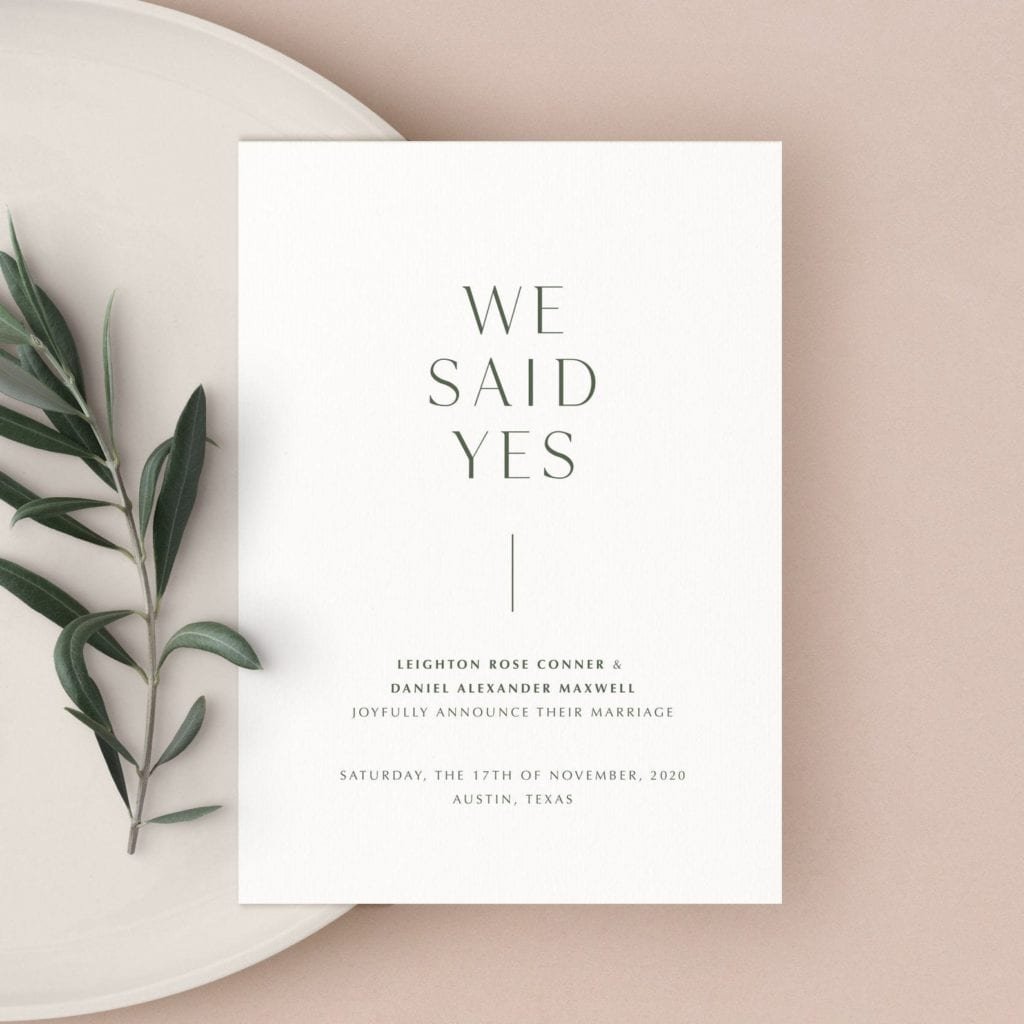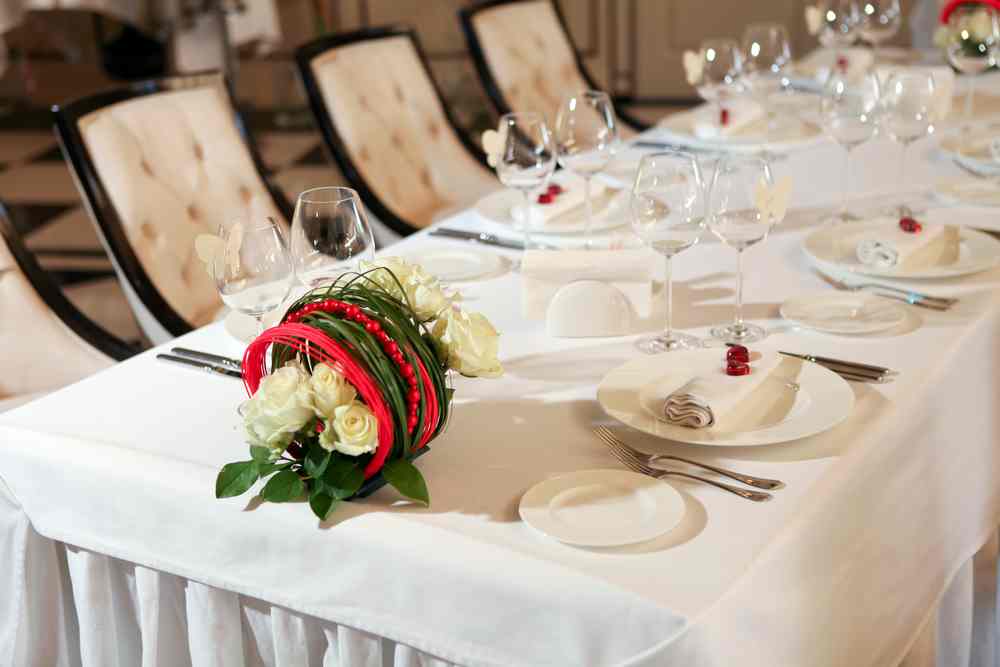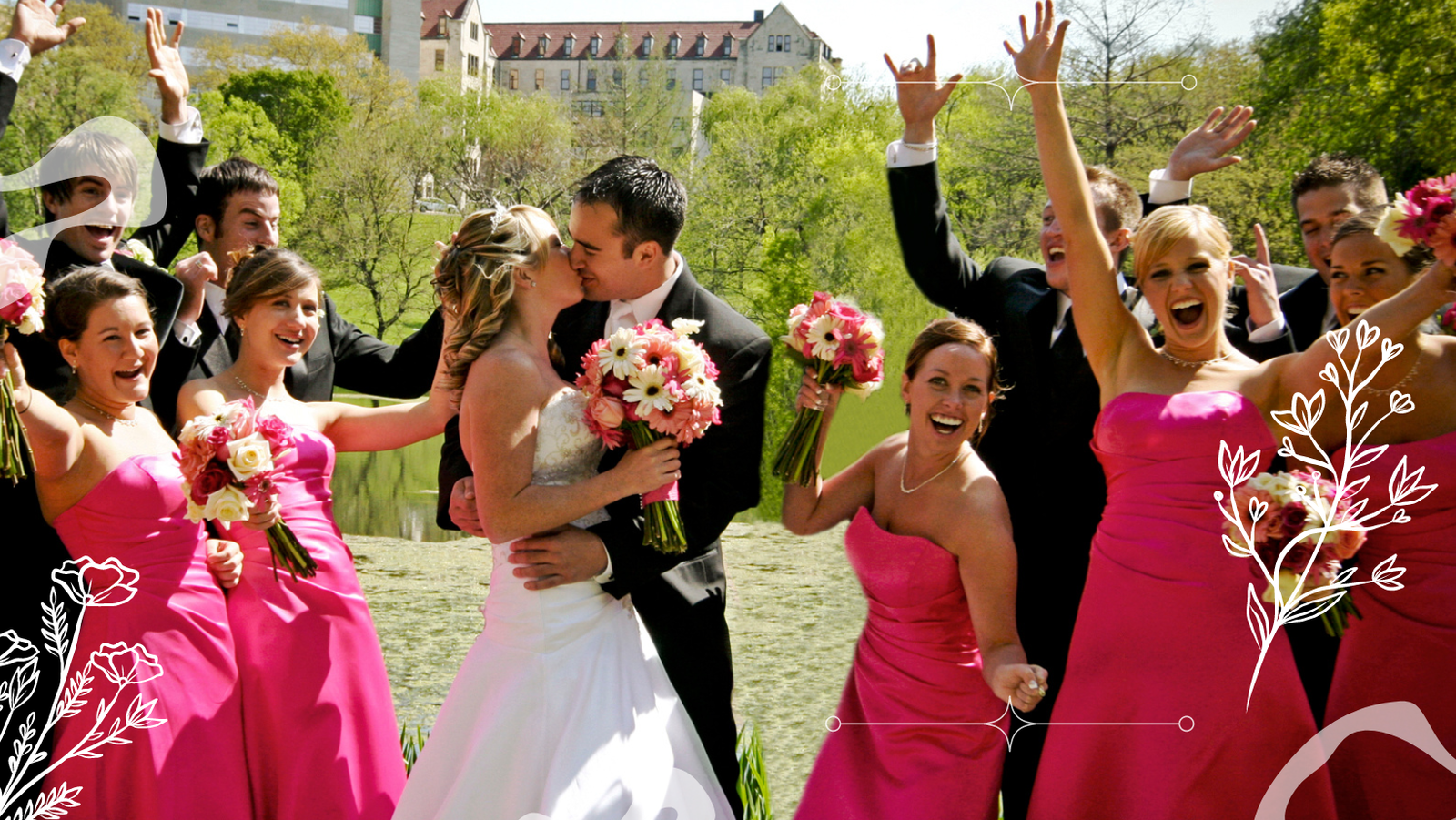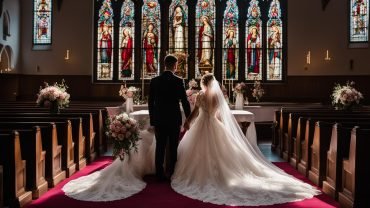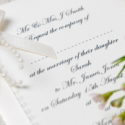Essential Elopement to Post-Wedding Manners and Etiquette
Planning a wedding can be an overwhelming task, but navigating through the world of elopement to post-wedding manners or etiquette adds another layer of complexity. From the moment you say ‘yes’ to the post-wedding celebrations, there are numerous formalities and traditions to consider.
In this article, we will guide you through the ins and outs of elopement-to-post-wedding manners, ensuring that your special day is not only memorable but also smoothly executed.
Whether you’re considering an elopement or a grand celebration with all your loved ones, understanding the proper etiquette for each stage of your wedding journey is vital. We will explore everything from engagement etiquette to invitation protocols, dress code expectations to social media decorum, and even how to navigate tricky family dynamics.
By following these guidelines, you can create an unforgettable experience for both yourself and your guests while maintaining a sense of intimacy that makes everyone feel connected. So let’s dive into the world of wedding etiquette together and make sure every aspect of your celebration is as perfect as can be!
Key Takeaways
- Dress code on wedding invitations should reflect the theme and tone of the wedding and be specific about the level of formality expected.
- The order of events during the ceremony should be clearly communicated to guests, and programs or guidebooks can be provided to help them understand and follow customs.
- Seating arrangements should be carefully organized, taking into consideration relationships, special needs, and preferences.
- When it comes to wedding gifts, thoughtfulness is more important than price, and it’s advisable to check if the couple has a gift registry. Personalized thank-you notes should be sent promptly for each gift received, and a small token of appreciation can be given even if unable to attend the wedding.
Elopement to Post-Wedding Manners and Etiquette
Are you planning an elopement or a traditional wedding? Either way, it’s important to know the wedding etiquette rules from elopement to post-wedding to ensure a smooth and enjoyable celebration for everyone involved.
When it comes to wedding etiquette, one of the most crucial aspects is understanding who should be invited to the wedding. It’s essential to create a guest list that includes close family members, friends, and loved ones who have been a part of your life. However, if you’re having a smaller ceremony or limited budget, it’s perfectly acceptable to have an intimate affair with only immediate family members present.
Another important rule of wedding etiquette is sending out thank you notes. After your big day, taking the time to express gratitude for gifts received and the presence of your guests is a thoughtful gesture. Handwritten thank you notes are considered more personal and sincere than generic emails or texts.
Make sure to mention the specific gift received and how much it means to you. Additionally, if someone graciously offered their services or helped in any way during your wedding preparations or on the day itself, don’t forget to send them a heartfelt thank you note as well.
Now let’s transition into discussing elopement etiquette without missing any steps.
Elopement manners and etiquette
Planning a small and intimate ceremony? Here’s what you need to know about elopement dos and don’ts. Elopements are becoming increasingly popular for couples who want a more private and personal wedding experience. While they may seem less formal than traditional weddings, there are still some important etiquette rules to follow.
- Keep it simple: One of the main reasons couples choose to elope is to have a stress-free wedding day. Opt for a minimalistic approach when it comes to decorations, attire, and guest list. Focus on what truly matters – your love and commitment to each other.
- Notify close family members: While eloping means keeping your ceremony intimate, it’s essential to inform immediate family members beforehand. This gesture shows respect and ensures that no one feels left out or hurt by not being included in your special day.
- Capture the moment: Just because you’re having a smaller ceremony doesn’t mean you shouldn’t document the occasion. Hire a professional photographer or videographer who specializes in elopements. These professionals will know how to capture the intimacy and emotions of your special day.
Now that you’ve mastered the art of elopement etiquette, let’s move on to engagement etiquette and discuss how to announce your upcoming nuptials in style without overwhelming those around you.
Engagement Etiquette
Get ready to pop the question and embark on an exciting journey of love and commitment – it’s time to dive into the world of engagement etiquette! This stage sets the tone for your entire wedding planning process, so it’s important to start off on the right foot.
Engagement etiquette encompasses a set of guidelines that help couples navigate this special time in their lives with grace and consideration. First and foremost, announcing your engagement is an essential step. Traditionally, close family and friends are informed in person or over the phone before making a public announcement on social media. It’s also customary for the bride-to-be’s parents to be informed prior to anyone else.
Once your engagement has been announced, it’s time to celebrate! An engagement party can be hosted by either set of parents or even by close friends. Remember that while gifts are not expected at an engagement party, guests may choose to bring something small as a gesture of congratulations.
Now that you have mastered the art of announcing and celebrating your engagement, let’s move on to invitation etiquette. A crucial part of wedding planning, sending out invitations requires attention to detail and proper etiquette. Ensure that all necessary information is included in your invitations such as the date, time, location, dress code (if any), RSVP details, and any additional instructions for guests.
It is considered polite to send out invitations at least six weeks prior to the wedding day so that guests have ample time to respond and make arrangements if needed. Be mindful when addressing envelopes – use proper titles like Mr., Mrs., Ms., or Dr., unless specifically instructed otherwise by certain individuals who prefer more informal forms of address.
With these tips in mind, you’re ready to create beautiful invitations that will set the tone for your special day without any hiccups along the way.
Now let’s transition into discussing ‘invitation etiquette’ where we’ll guide you through designing stunning invites that will impress your guests from first glance onwards.
Invitation Etiquette
Once your engagement has been officially announced, it’s time to embark on the next step of your journey – creating elegant and thoughtful invitations that will leave a lasting impression on your guests
The wedding invitation is not just a piece of paper; it’s the first glimpse into your special day that your guests will receive. Start by carefully curating your guest list, making sure to include all the important people in your life. Consider whether you want a small and intimate affair or a large celebration with all your friends and family.
When designing the invitations, choose a style that reflects the overall theme and tone of your wedding. Whether you opt for traditional or modern, make sure to include all the essential details such as date, time, and location. Additionally, provide clear instructions for RSVP so that guests can respond promptly. It’s also a good idea to include any additional information such as accommodation options or transportation arrangements if necessary.
As you finalize the design and content of your invitations, don’t forget to consider dress code etiquette. Indicate the preferred attire on the invitation so that guests can come dressed appropriately for your big day. Whether it’s black tie formal or casual beach attire, make sure to communicate this information clearly so that everyone feels comfortable and knows what to expect.
Now, let’s move on to discussing dress code etiquette in more detail…
Dress Code Etiquette
When considering the dress code for your special day, it’s important to create a clear and concise invitation that reflects the overall theme and tone of your wedding. The dress code sets the expectations for your guests and helps them understand what type of attire is appropriate for the occasion.
Whether you’re planning an elopement or a grand post-wedding celebration, following dress code etiquette rules will ensure that everyone is dressed appropriately and feels comfortable.
Include specific dress code instructions on your invitation to provide guidance to your guests. You can use keywords like ‘black tie,’ ‘cocktail attire,’ or ‘casual chic’ to indicate the level of formality expected. If you have a particular color scheme or theme, mention it as well so that guests can coordinate their outfits accordingly. Providing these details in advance will help avoid any confusion or last-minute fashion faux pas.
Remember that dress codes are meant to enhance the overall atmosphere of your wedding, so choose one that aligns with the style and ambiance you want to create. It’s also essential to consider factors such as weather, venue location, and time of day when deciding on the appropriate attire. By following these etiquette tips for dress code selection, you’ll ensure a cohesive look among your guests while still allowing them to express their personal style.
Now let’s move on to ceremony etiquette where we’ll discuss how you can make this significant moment even more memorable for both you and your guests.
Ceremony Etiquette
Now that you’ve sorted out the dress code for your wedding, it’s time to delve into the intricacies of ceremony etiquette. The ceremony is the heart of any wedding, where you and your partner publicly declare your love and commitment to each other in front of your loved ones. To ensure that everything runs smoothly, there are a few wedding etiquette rules to keep in mind.
First and foremost, it’s essential to establish a clear plan for the order of events during the ceremony. This includes who will be walking down the aisle and in what order. Traditionally, the bridal party enters first, with the bridesmaids walking down the aisle followed by the maid/matron of honor.
The groomsmen then make their entrance, leading up to the best man escorting either an honored guest or family member down the aisle. Finally, all eyes turn towards the bride as she makes her grand entrance accompanied by her father or another significant person in her life.
During this momentous walk down the aisle, it’s important for guests to remain seated and refrain from taking photos or videos that may obstruct others’ views. Additionally, if you’re part of a religious ceremony or have specific cultural traditions incorporated into your wedding, providing a program or guidebook can help guests understand and follow along with these customs.
As we move on from ceremony etiquette, let’s shift our focus towards reception etiquette…
Reception Etiquette
As we transition to the reception, it’s important to consider the seating arrangements and ensure that guests are comfortably seated with their assigned tables. Following wedding etiquette rules, it is customary for the bride and groom to have a head table where they sit with their immediate family members, such as parents and siblings.
The rest of the guests can be seated at round tables or rectangular tables, depending on the venue and personal preference. To make the seating process smoother, it’s essential to create a detailed seating chart ahead of time. This will help avoid any confusion or last-minute changes during the reception. It’s also considerate to take into account any special needs or preferences of your guests, such as dietary restrictions or physical limitations.
During the reception, it is customary for the bride and groom to visit each table and personally thank their guests for attending. This gesture shows appreciation for their presence on this special day. Additionally, keep in mind that certain traditions may dictate who sits where. For example, some cultures have specific rules about seating elders or VIPs closer to the couple.
As you navigate through reception etiquette and ensure everyone is comfortably seated at their assigned tables, it’s crucial to remember that these arrangements set the tone for an enjoyable celebration.
Next up is our discussion on seating etiquette, which will further delve into how to organize your guests’ placements without causing any unnecessary stress or confusion.
Seating Etiquette
Ensure that your guests are comfortably seated at their assigned tables by carefully organizing the seating arrangements according to seating etiquette. Start by creating a seating chart that clearly indicates where each guest should be seated. This will help avoid any confusion or last-minute changes on the day of the wedding.
Consider grouping guests together based on their relationship to one another, such as family members, close friends, or colleagues. Additionally, take into account any special needs or preferences your guests may have, such as dietary restrictions or physical limitations.
When arranging the tables, make sure they’re appropriately spaced and allow for easy navigation between them. Guests shouldn’t feel crowded or cramped in their seats. It’s also important to consider the dynamics between certain individuals and strategically place them apart if necessary to prevent any potential conflicts or awkward situations.
Remember that seating etiquette applies not only to the reception but also to the ceremony itself. Ensure that immediate family members and close friends have reserved seats at both events, so they feel honored and valued.
Lastly, double-check all the arrangements before finalizing them to avoid any seating mishaps.
By following proper seating etiquette, you can create a comfortable and enjoyable atmosphere for your guests throughout both the ceremony and reception. This attention to detail will show your thoughtfulness as a host while ensuring everyone feels included and well taken care of at your wedding celebration.
Moving on from seating etiquette, let’s now discuss gift etiquette…
Gift Etiquette
When it comes to giving gifts at a wedding, it’s important to remember that it’s the thought that counts and not the price tag. While there aren’t strict rules when it comes to gift etiquette, here are some guidelines to help you navigate this aspect of wedding traditions:
- Gift Registry: Check if the couple has created a gift registry and choose a present from there. This ensures that you give them something they actually need or want.
- Wedding Gift Budget: Set a budget for your wedding gift based on your relationship with the couple and your own financial circumstances. It’s not necessary to spend beyond your means.
- Cash Gifts: If you prefer to give cash instead of a physical gift, consider presenting it in an envelope or card discreetly during the reception or mailing it directly before or after the wedding.
- Thank You Notes: Upon receiving a wedding gift, couples should promptly send out personalized thank-you notes expressing their gratitude for each present received. A handwritten note goes a long way in showing appreciation.
- Token of Appreciation: Even if you can’t attend the wedding, sending a small token of appreciation is thoughtful. It could be anything from flowers to a heartfelt note expressing your well wishes.
Moving on to speech and toast etiquette, remember that this is an opportunity for loved ones to share their warm sentiments with the newlyweds.
Speech and Toast Etiquette
Now that you’ve learned about gift etiquette, let’s move on to another important aspect of wedding etiquette: speech and toast etiquette. Speeches and toasts are a cherished tradition at weddings. They provide an opportunity for loved ones to express their heartfelt sentiments and well wishes for the couple. However, it’s essential to follow certain etiquette rules to ensure that these moments are meaningful and enjoyable for everyone involved.
Firstly, when it comes to speeches, it’s customary for the father of the bride, best man, maid of honor, and sometimes the groom himself to give a speech. These speeches should be prepared in advance and should be kept concise yet heartfelt. It’s important to remember that this isn’t the time for embarrassing stories or inside jokes that only a few people will understand. Instead, focus on sharing genuine anecdotes about the couple and expressing your love and support for them.
When it comes to toasts, it’s customary for the best man or maid of honor to propose a toast during their speech. However, other guests may also offer a toast if they wish. If you’re giving a toast, make sure to keep it short and sweet. Raise your glass towards the couple while speaking and make eye contact with them as you propose the toast. Remember that this is a celebratory moment, so keep your words positive and uplifting.
As we move forward in discussing wedding etiquette rules from elopement to post-wedding events, let’s now delve into photography etiquette.
Photography Etiquette
Capture the beauty and essence of your special day by adhering to proper photography protocols. Photography etiquette is an essential aspect of wedding etiquette rules, whether you’re having an intimate elopement or a grand post-wedding celebration.
First and foremost, it’s crucial to communicate with your photographer before the wedding ceremony. Discuss your vision, desired shots, and any specific moments or details that hold significance to you. This will ensure that they capture all the important aspects of your day while also respecting your preferences.
During the wedding ceremony itself, it’s essential to respect the sanctity of the moment. Remind your guests about photography etiquette by including a note in the program or having a brief announcement before the ceremony begins. Encourage them to refrain from taking photos during key moments such as vows or ring exchanges so that everyone can be fully present in those precious moments without distractions.
As for post-wedding photography, plan ahead for any group shots you want with family and friends. Creating a schedule will help streamline this process and make sure that no one gets left out. Remember to be considerate of others’ time by being efficient during these photo sessions.
Transitioning into social media etiquette, it’s important to understand how sharing photos online can impact not only yourself but also those around you.
Social Media Etiquette
Immerse yourself in the digital world of weddings by mastering the art of social media etiquette, ensuring your online presence reflects the joy and elegance of your special day. When it comes to sharing your wedding journey on social media platforms, following certain wedding etiquette rules can help you navigate this virtual landscape with grace and consideration. Here are a few tips to keep in mind:
Be mindful of timing: While it’s natural to be excited about your elopement or post-wedding celebrations, remember that not everyone may have been able to attend or share in your experience. Give yourself some time before posting about these events on social media, allowing those closest to you to hear the news directly from you first.
Respect privacy boundaries: Before posting any photos or updates related to your wedding, take a moment to consider the privacy preferences of both yourselves and others involved. Some guests may prefer not to have their images shared publicly, so always seek permission before posting anything that includes them.
Use appropriate hashtags: Hashtags can be a fun way to categorize and share moments from your special day. However, ensure they’re unique and personal to you as a couple rather than using generic ones that could easily get lost in a sea of other posts. This will make it easier for friends and family members who couldn’t attend your wedding to find all the beautiful moments you’ve shared online.
Now that you’re well-versed in social media etiquette for weddings, let’s move on to exploring bridal party etiquette without missing a beat!
Bridal Party Etiquette
Make sure to include your bridal party in the planning process, as they play a crucial role in adding an element of excitement and support to your special day. The bridal party consists of close friends and family members who have been chosen by the bride and groom to stand beside them on their wedding day.
It is important to communicate with your bridal party about their responsibilities, such as attending dress fittings, rehearsals, and other pre-wedding events. Proper wedding etiquette suggests that the bride should provide clear instructions for the bridesmaids’ attire, hairstyle, makeup, and accessories, while also considering their preferences and comfort.
In addition to participating in pre-wedding events, the bridal party is usually involved in various tasks during the wedding day itself. This may include helping with decorations, assisting guests with seating arrangements, ushering during the ceremony, or even giving a speech or toast.
It is important for the bride and groom to express their gratitude towards their wedding parties for their involvement and support throughout the planning process and on the big day itself.
Now that you understand how essential it is to involve your bridal party in the planning process of your special day, let’s move on to discussing proper family etiquette.
Family Etiquette
Ensure that your family members are involved in the planning process, as their presence and support on your special day is highly valued. Here are some wedding etiquette rules to consider when it comes to family involvement:
- Communicate openly: Keep your family informed about the wedding plans and any decisions that are being made. This will help avoid any misunderstandings or hurt feelings later on.
- Include them in key moments: Involve your family in important aspects of the wedding, such as dress shopping, venue selection, or even helping with DIY projects. This will make them feel included and valued.
- Respect their opinions: While it’s ultimately your decision as a couple, it’s important to listen to and consider the opinions of your family members. They may have valuable insights or suggestions that could enhance your special day.
- Assign roles: Give specific tasks or responsibilities to different family members, if they’re willing and able to take them on. Whether it’s helping with decorations, coordinating transportation, or assisting with guest seating arrangements, this can help alleviate stress for you and make them feel more involved.
It’s crucial to maintain good communication and involve your loved ones in the wedding planning process. After all, their support plays a vital role in making your wedding day memorable.
Now let’s move on to discussing destination wedding etiquette.
Destination Wedding Etiquette
Discover the art of gracefully navigating a romantic getaway celebration with your nearest and dearest through the realm of destination wedding etiquette.
When planning a destination wedding, it’s essential to consider the unique aspects that come with hosting an event in a different location. First and foremost, it’s crucial to communicate clearly with your guests about all the details of the wedding. Provide them with comprehensive information about travel arrangements, accommodation options, and any necessary visas or passports required for their visit. This’ll help ensure that everyone can plan accordingly and make necessary arrangements in advance.
Another important aspect of destination wedding etiquette is considering the comfort and convenience of your guests. Keep in mind that they’re not only attending your special day but also taking time off work and spending money on travel expenses. So, it’s courteous to arrange additional events surrounding the wedding, such as a welcome reception or group activities, to show appreciation for their presence.
Additionally, consider organizing a bridal shower or rehearsal dinner at the destination to involve your loved ones in pre-wedding celebrations. Working closely with a local wedding planner who specializes in destination weddings can be immensely helpful throughout this process. They’ll have extensive knowledge about the area and can assist you in finding reputable vendors for services like catering, photography, and transportation. Furthermore, they can provide valuable insights into local customs and traditions so that you can incorporate them seamlessly into your beach wedding ceremony if desired.
By adhering to proper destination wedding etiquette guidelines and working together with professionals such as a wedding planner, you can create an unforgettable celebration for both you and your loved ones while ensuring everyone’s comfort and enjoyment throughout every step of the journey. From selecting a picturesque location and arranging accommodations to organizing transportation and coordinating activities, a destination wedding can be a seamless and enjoyable experience for all involved.
Frequently Asked Questions
Can I wear a black dress to a wedding?
Yes, you can wear a black dress to a wedding. However, it’s important to consider the formality of the event and choose an appropriate style. Pair it with colorful accessories and avoid wearing all-black to show respect for the occasion.
How much should I spend on a wedding gift?
When it comes to wedding gifts, the general rule is to spend an amount that reflects your relationship with the couple. However, don’t feel pressured to break the bank – thoughtful and meaningful gifts can be priceless.
Is it appropriate to take photos during the ceremony?
It is generally considered inappropriate to take photos during the ceremony as it can be distracting and disrespectful. It is best to leave capturing those special moments to the professional photographer hired for the occasion.
What should I include in my wedding speech?
In your wedding speech, include a heartfelt introduction, express gratitude to attendees and loved ones, share anecdotes about the couple, offer well wishes for their future, and end with a toast. Remember to keep it concise and sincere.
How do I handle a difficult family member during the wedding?
Handling a difficult family member during your wedding can be challenging. Maintain open communication, set boundaries, and consider involving a neutral third party if necessary. Remember to prioritize your own happiness and ensure a peaceful atmosphere on your special day.
Conclusion
In conclusion, understanding and adhering to wedding etiquette rules can greatly enhance your special day. By following these guidelines, you’ll create an atmosphere of respect, consideration, and joy for both you and your guests.
From the moment you announce your engagement, it’s important to handle the situation with grace and tact. This includes considering the feelings of loved ones who may not have been included in the initial elopement plans. By communicating openly and honestly with them, you can ensure that everyone feels valued and involved in your special day.
When it comes to invitations, dress code, and seating arrangements, attention to detail is key. By providing clear instructions on dress code expectations and assigned seating at both the ceremony and reception, you can alleviate any potential confusion or discomfort for your guests.
In today’s digital age, social media plays a significant role in weddings. It’s crucial to establish ground rules regarding sharing photos on various platforms to protect privacy and maintain the element of surprise for those who couldn’t attend.
Lastly, involving your bridal party and family members in a considerate manner will make them feel appreciated throughout the entire process. From selecting bridesmaids’ dresses to giving thoughtful gifts, each gesture should reflect gratitude for their support.
With destination weddings becoming increasingly popular, it’s important to plan accordingly by providing travel information well in advance. This will allow guests ample time to make arrangements while also ensuring a smooth experience at the chosen location.
Overall, by embracing wedding etiquette rules from elopement to post-wedding festivities, you’re setting yourself up for a memorable event that reflects not only your love but also consideration for those closest to you. So go forth with confidence knowing that every decision made along this journey has been done so thoughtfully – resulting in a truly unforgettable celebration of love.
“From the carefully curated guest list to the personalized wedding favors, every detail has been meticulously planned to ensure that our loved ones feel cherished and our love story is beautifully immortalized.”
